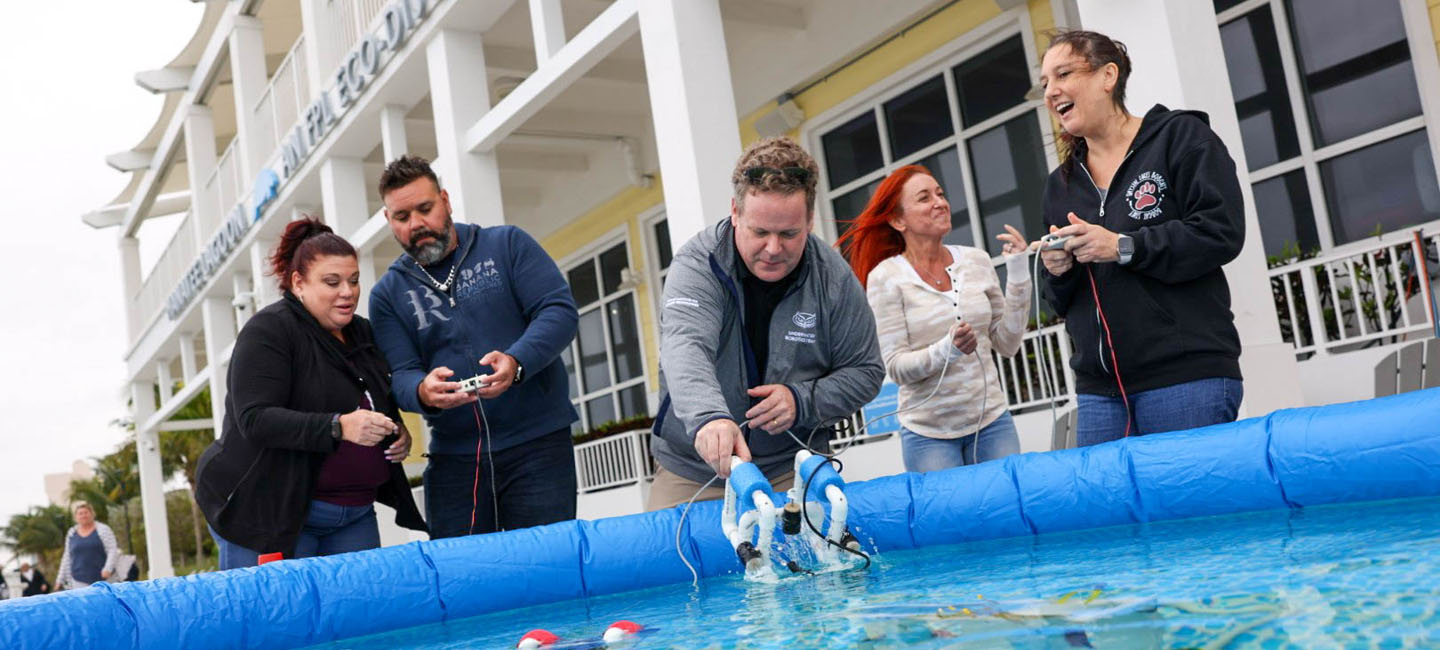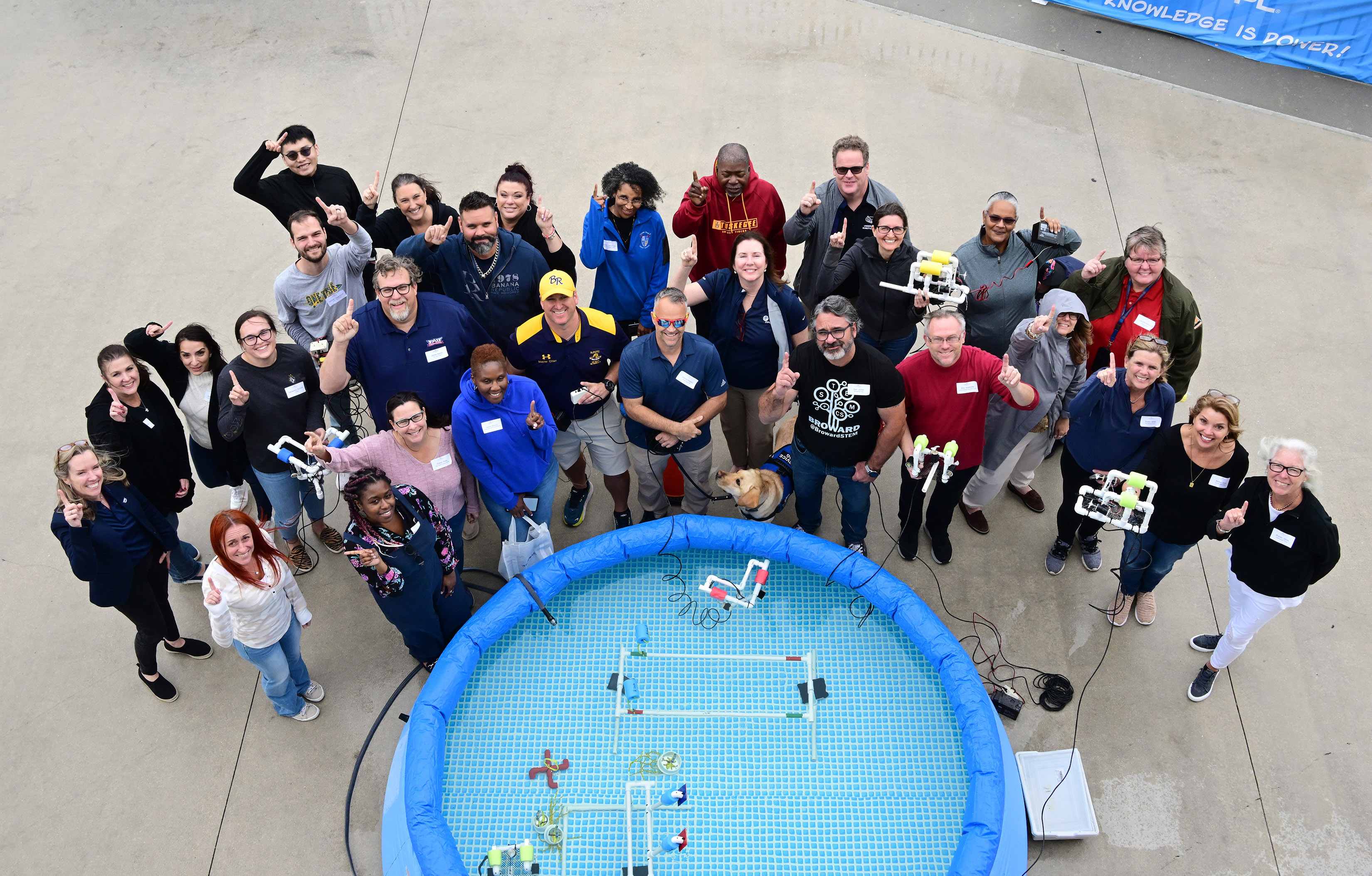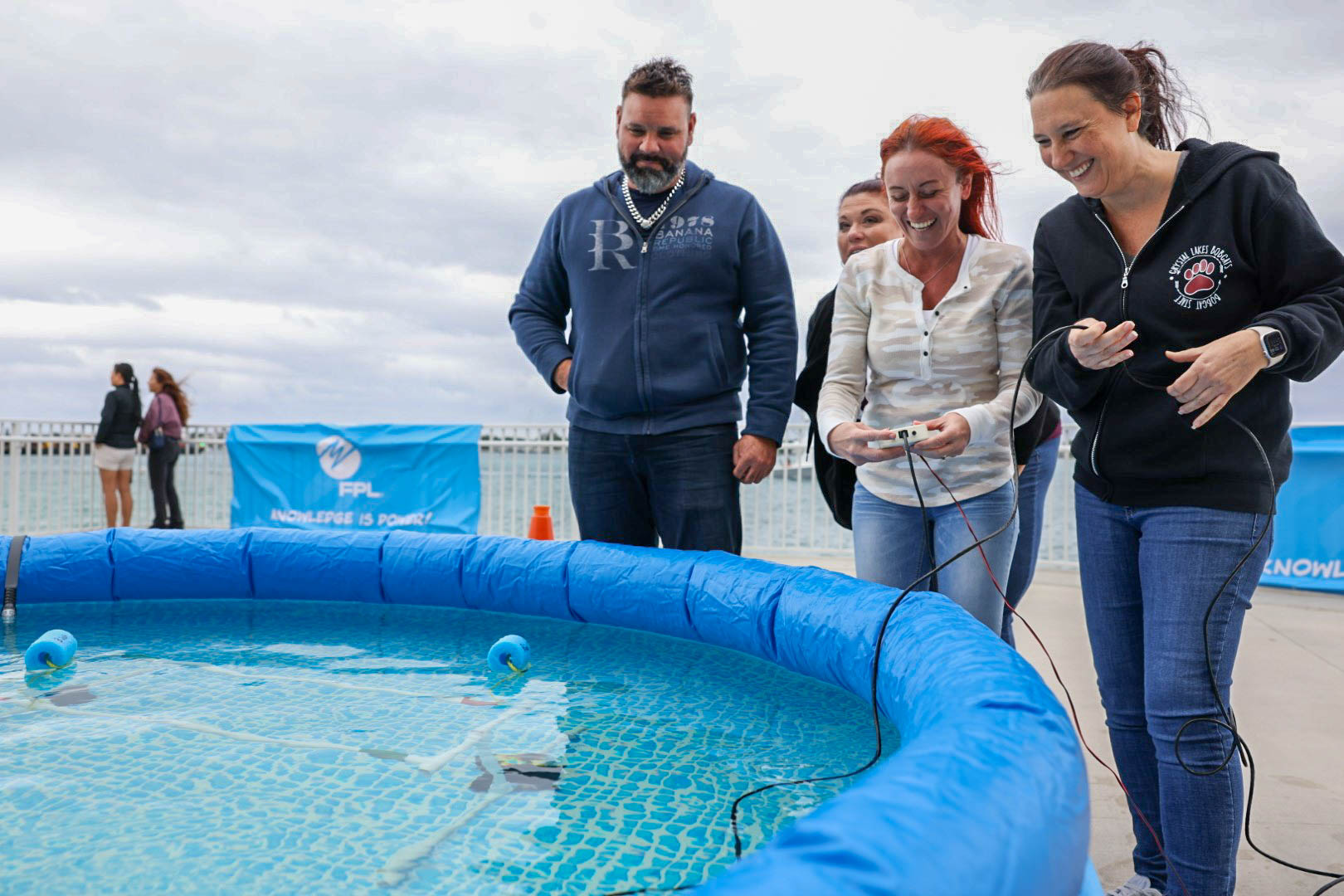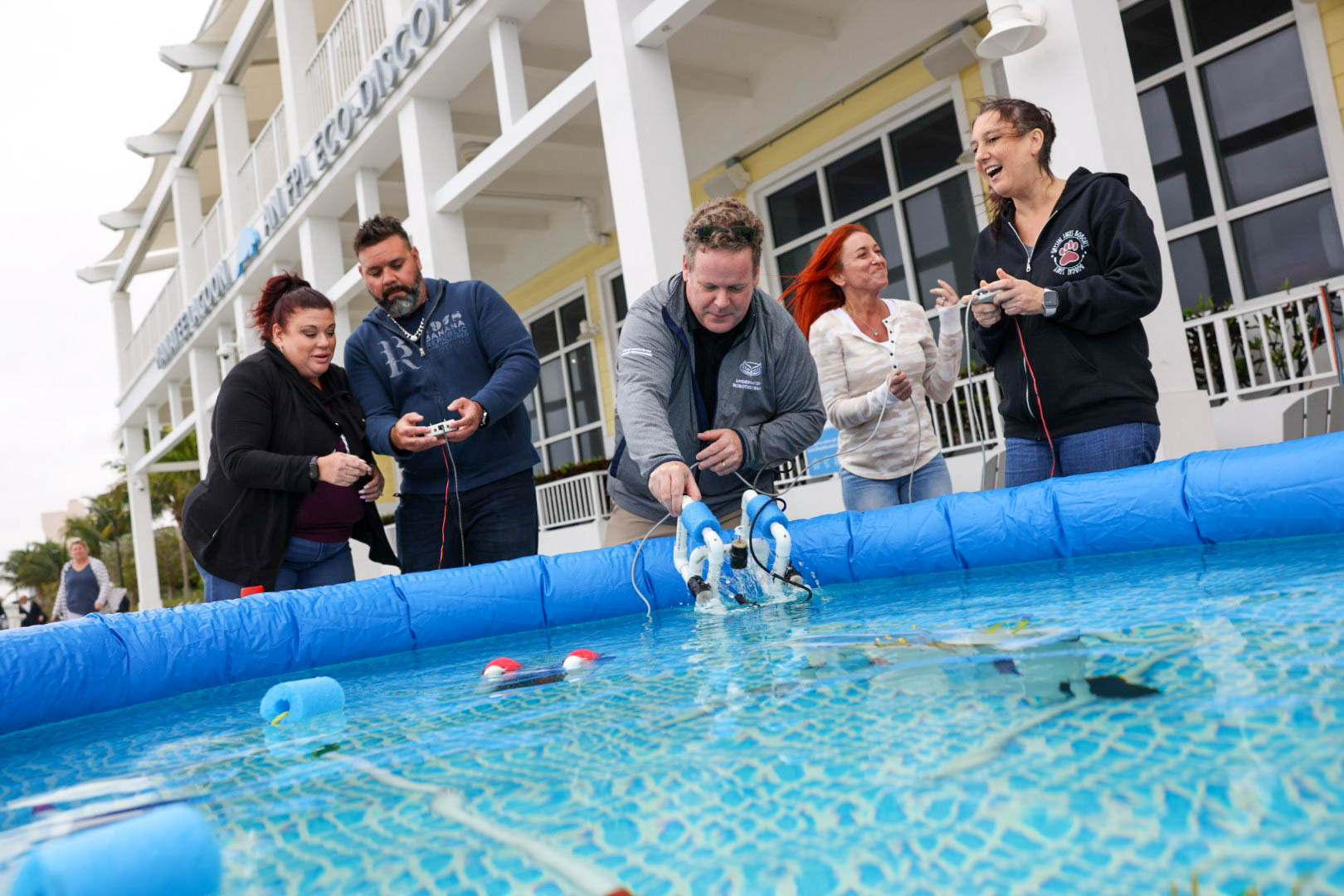
It’s a cold, cloudy day at Manatee Lagoon, FPL’s Eco-Discovery Center, and the place is buzzing with visitors. Families and tourists stop by hoping to spot a manatee swimming in the surrounding waters, but some visitors might be surprised to learn that on the building’s second floor, 30 South Florida teachers are building robots.
They’ve been invited by FPL and FAU Lab Schools, an independent public school district with two schools under Florida Atlantic University in Boca Raton, in hopes of spreading STEM (Science, Technology, Engineering, Math) programs to local students.
At the workshop, teachers spent the morning learning about the mechanics behind underwater Remotely Operated Vehicles (ROVs) and creating them using PVC pipes, propellers and circuit boards. Once they finished building the ROVs, they tested their robots in an inflatable pool – enthralling visitors who came just to see marine mammals with the surprise of a different kind of underwater show.

“Most students in STEM programs have done a lot with ground robotics, wheels and sensors, but underwater robotics adds another level of complexity,” Kyle Bush said. “It’s very different than what’s usually taught in STEM. It makes students think in different ways and it’s very engaging.”
Bush is the lead project manager for FPL's robotics programs within Power Delivery where he uses advanced remote-controlled robots to monitor substations around the state. He often volunteers in local STEM programs like these because he believes it’s crucial for the next generation of students to be exposed to opportunities that may turn into exciting and well-paying jobs in the future.
“I need someone to take my job when I retire,” Bush laughs. “In the future, we’ll need people to support these roles and it’s through STEM education and partnerships like these that we can make it happen.”

FAU Lab Schools’ STEM teacher James Nance agrees, “We have a real need for students in the engineering and STEM fields in our country for energy security, national security and to drive our industry in the U.S.”
Last year, one of the student teams he coached earned the World Champion title. Both robotics enthusiasts hope they share the title with other South Florida schools in the upcoming tournaments.
The first step, Nance said, is helping Florida teachers create new and engaging STEM opportunities for their students, a mission FPL was happy to help with by hosting the STEM workshop at Manatee Lagoon and gifting each teacher a $450 ROV kit and tool bag to begin new teams in their local elementary, middle and high schools.

Among the dozens of Broward and Palm Beach County teachers at the workshop was a group of Boynton Beach teachers excited to bring back robotics lessons to their students.
“I think it’s fabulous training and providing the materials to create the robots makes it easier,” Dawn Lane, a third-grade teacher at Crystal Lakes Elementary, said. She’s going to host her own presentation to share what she learned with the rest of the teachers at her school.
Others in her group are thinking of creating their own student teams to compete at the upcoming underwater robotics tournament.
“I’d expect to see 70-80% of these teachers at our regional tournament at least and we hope to provide opportunities for their students to move forward to nationals,” Nance said.
FPL is helping by sponsoring four regional qualifying tournaments and registration expenses of a minimum of eight local middle and high school teams, providing them with the opportunity to attend the International SeaPerch Challenge at the University of Maryland on May 13. FPL also donated $25,000 to FAU Lab Schools.
“With the check presented today, we’ll see the impact right away with these teachers each taking home supplies, robot kits and tool kits they can use in their classrooms that are worth $450 alone,” Nance said. “This would probably be half the budget they have for their entire science department, so it’s incredible to have. They can use these tools to run dozens of teams for the next few years.”




